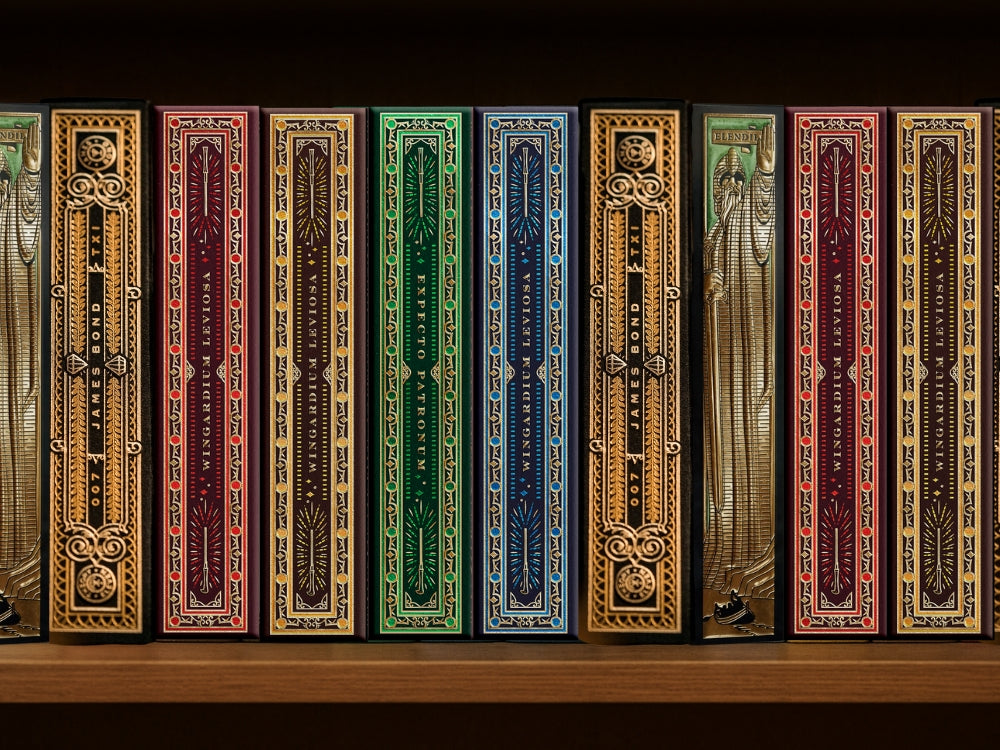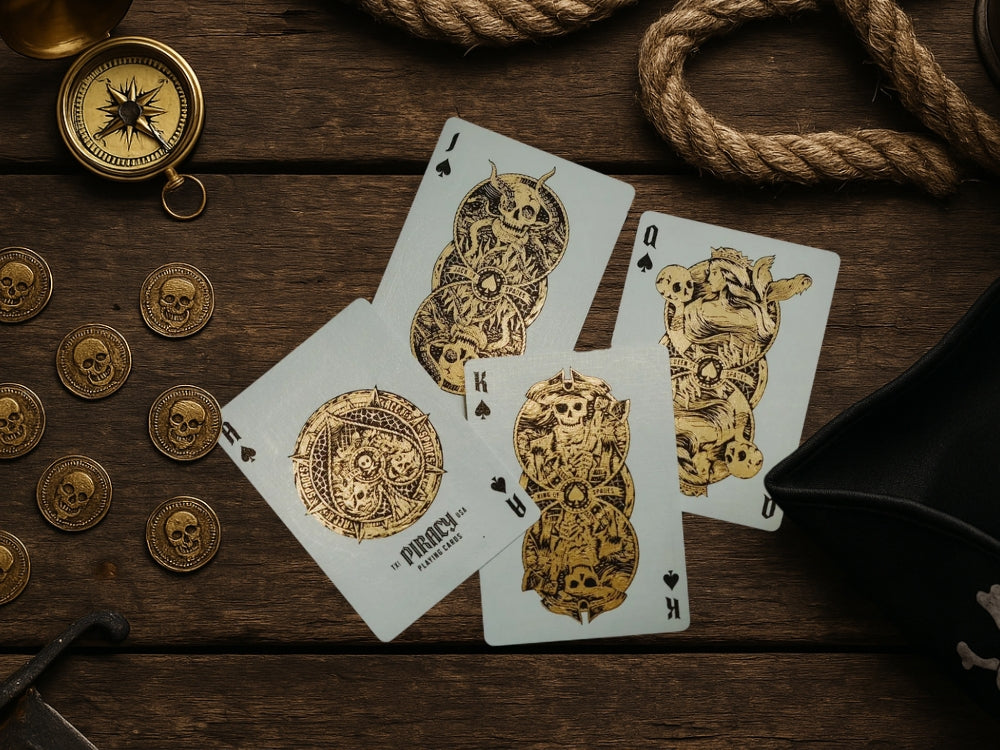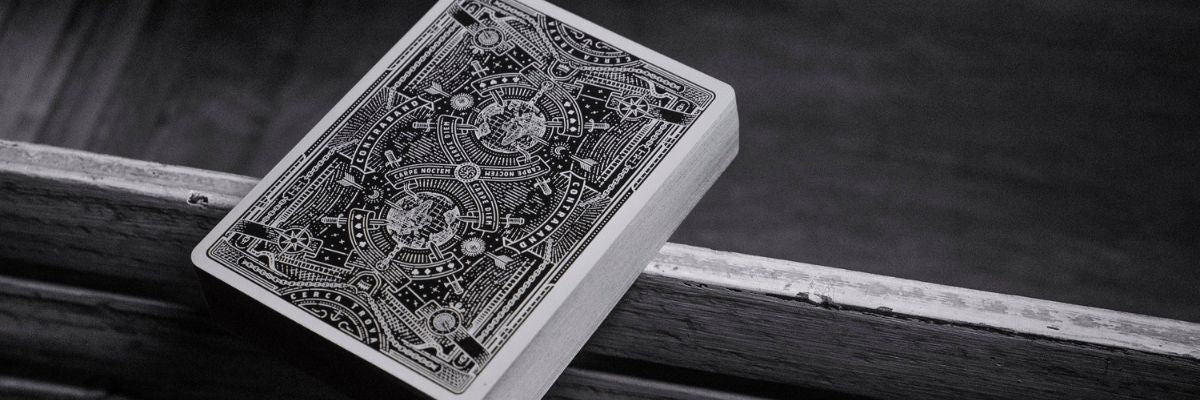Ever found yourself clutching an ace card like it was pure gold, even though deep down you knew it wasn’t enough to win the hand? Or maybe you’ve doubled down on a dodgy play just because, well, you'd already come this far. That right there is the psychology of playing cards in action – and once you notice it, you start to realise just how many brainy layers are hiding beneath your average deck.
Card games aren’t just about chance or strategy; they’re like little psychological laboratories disguised as fun. They mess with your memory, test your attention span, tug at your emotions, and throw your decision-making skills into the fire, all in the space of a few shuffles. And if you’re playing with a pack of premium playing cards, all that high-stakes thinking just feels a bit more cinematic.
Let’s start with the basics: risk and probability. Every game forces you to size up uncertainty – what are the odds your opponent's got the card you’re hoping they don’t? Whether you're playing poker or a quick game of Snap, you're constantly estimating chances. The trouble is, we humans are famously bad at this. We overestimate rare wins and underestimate common losses. That’s why someone might chase a losing hand for ten rounds straight – because surely it’s about to turn around. (Spoiler: it’s not.)
Memory plays a sneaky role too. Good players remember what’s been played, what others tend to do, and which cards seem to keep popping up. Great players remember it all without looking like they’re trying. Attention matters just as much – you can’t spot a bluff or track a discard pile if your mind’s wandered off to what’s for dinner. It’s no coincidence that regular card players often show sharper thinking as they get older. The brain loves a pattern, and playing cards are full of them.
But if memory and maths are the bones of decision-making, emotion is the heartbeat. We’ve all had that moment of tilt; when a frustrating loss makes you throw strategy out the window and play like a maniac. That’s anger talking. Excitement and fear can mess with you too, nudging you into reckless bets or overly cautious folds. Emotionally intelligent players tend to win more, not because they feel less, but because they know how to ride those feelings without letting them steer the whole hand.
And don’t get me started on social dynamics. Whether you’re sitting across the table or playing online, every gesture, pause, and betting pattern says something. Some players bluff with confidence, others with nerves. Then there’s table talk. Those casual comments people throw out that aren’t so casual. In live games, it’s practically an art form. In online games, the absence of facial tells means people get inventive.
Interestingly, the stakes you’re playing for totally change the way people think. Higher stakes bring more pressure, and under pressure, decision-making gets fuzzy. Add a ticking timer (common in online games) and watch how quickly people ditch logic for gut instinct. That’s not always a bad thing, though. Studies suggest that beginners sometimes play better under time pressure because they don’t overthink it. Who knew?
Different games push different buttons, too. Poker’s all about bluffing and managing incomplete info. Bridge is more about silent teamwork and remembering every card played. Blackjack? Mostly maths, with a splash of nerve. Even memory games like Concentration have been used in psychology labs to test attention spans. That’s the beauty of cards: one format, endless mental challenges.
All the while, our brains are doing something a bit sneaky – falling into traps called cognitive biases. For example, confirmation bias, where you ignore the obvious signs because you want to believe your hand is solid. Or the sunk cost fallacy, where you keep playing a bad hand because you’ve already bet so much. Or overconfidence (classic), where one lucky win turns you into a self-declared card shark.
Recognising these traps is half the battle. The other half? Practice. The more you play, the more those snap decisions become quietly informed ones. That’s how expertise is built – not just through skill, but through emotional control, pattern recognition, and experience. And yes, a little flair doesn’t hurt either.
Game theory also has a lot to say here. It’s the maths-y framework behind optimal strategy – how to make yourself unpredictable and hard to exploit. But here’s the twist: not everyone plays rationally. People tilt, panic, misread… which means the game’s never just about the cards. It’s about the people playing them.
The thing is, all of this – risk, reward, emotion, memory, bluffing – translates far beyond the table. The psychology of playing cards mirrors real life more than most board games ever could. Business negotiations, investing, even day-to-day decision-making, they all echo the same dance between instinct and logic, certainty and doubt.
So next time you pick up a deck of cards, remember: you're not just playing a game. You’re flexing your brain in a surprisingly sophisticated way. And if you’re doing it with a deck of luxury playing cards – maybe something with embossed foils or stunning court cards that make the whole thing feel timeless – well, all the better.
If you’re the kind of person who’s drawn to this blend of psychology and play, you might want to check out some of the best quality playing cards. Whether it’s the bold drama of Avengers playing cards or a deck of the collectible Theory11 playing cards, there’s something satisfying about holding a bit of art in your hands that also happens to test your brain.
And hey, even if you lose the hand, at least you’ll look good doing it.




